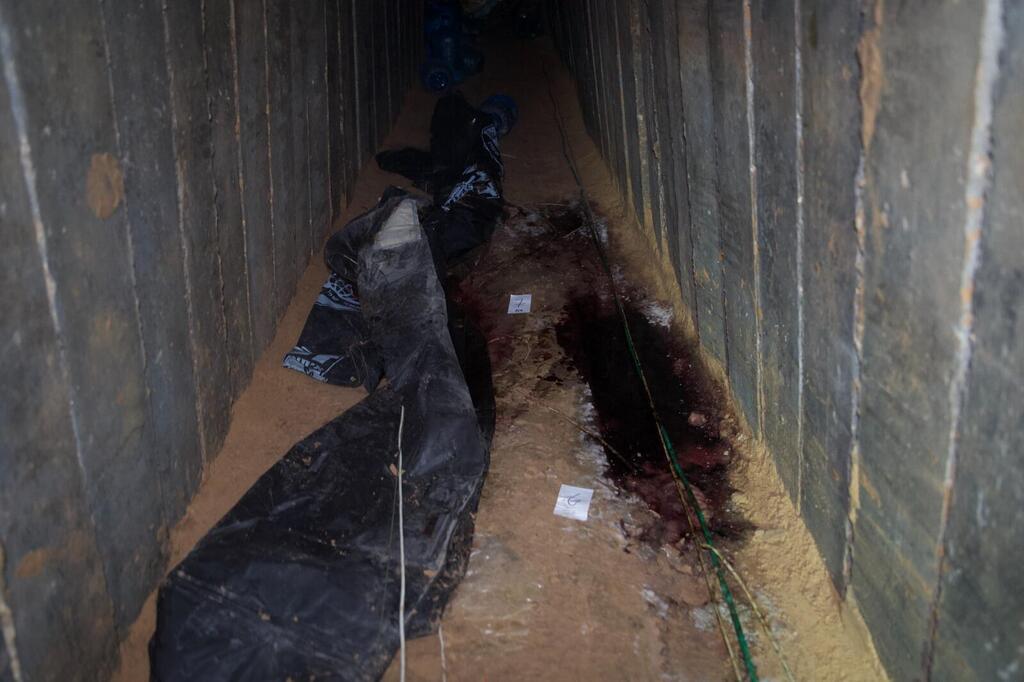After the publication of chilling footage from a Rafah tunnel in which six Israeli hostages were executed by Hamas, Prof. Hagai Levine, head of the Medical and Resilience Task Force for the Hostages and Missing Families Forum, emphasized the dire conditions the remaining hostages face.
"These conditions endanger their lives every hour of every day, affecting both their mental and physical health," Levine told Ynet. "Our fears and nightmares are coming true. We cannot imagine what the 101 remaining hostages in Gaza, some of whom may be in even worse conditions, are enduring."
1 View gallery


In the tunnel in Rafah in which the hostages were found
(Photo: IDF Spokesperson's Unit)
Levine stressed the urgent need for action: "It’s absolutely clear that we must make every effort to rescue them. We cannot allow a situation where they are buried underground in inhumane conditions—slowly being killed."
He noted that elderly and ill hostages have already perished due to severe dehydration and lack of movement, which can lead to fatal blood clots. "We know the abuse they're suffering will scar them for life. The lack of light is damaging their eyes and bones, and poor ventilation is affecting their ability to breathe. Even the healthiest person could die in these conditions or suffer lifelong complications."
Levine praised the six hostages who were killed last month, calling them "heroes who survived more than 300 days in captivity." He believes they were executed by Hamas due to mounting military pressure.
In the tunnel in Rafah in which the hostages were found
(Video: IDF Spokesperson's Unit)
Prof. Amit Frenkel, a senior intensive care doctor at Soroka Medical Center, echoed Levine’s concerns, saying, "We were shocked by the severe damage we’ve only read about in textbooks but never thought we’d witness. The human body is not built to survive in such subhuman conditions. Severe malnutrition leads to vitamin and mineral deficiencies, harming every system in the body, including the blood, immune, and nervous systems."
Frenkel warned that some damage may be irreversible, even with the best medical care. "It’s important to highlight the psychological toll as well. Prolonged exposure to such conditions can lead to severe mental health trauma, including depression, anxiety, and post-traumatic stress. The absence of sensory stimulation could also trigger psychosis. We’re looking at a combination of factors that could cause permanent harm to the hostages' physical and mental health."
Levine also described the toll on the families of the hostages: "They are becoming physically ill, and some may even die from the strain of this horrific situation. They see the footage and wonder what is happening to their loved ones. It’s an unbearable thought. I see them suffering, and they are slowly deteriorating in this impossible situation."




